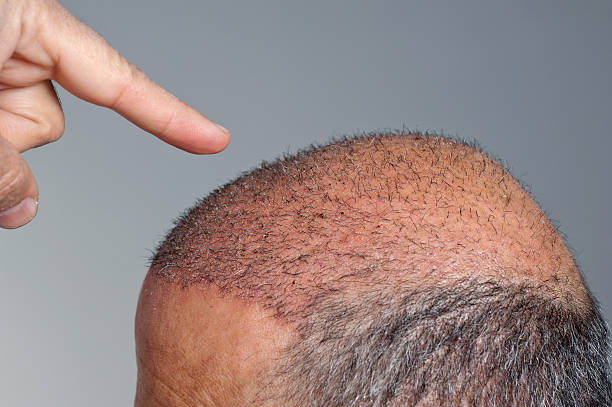Understanding Scalp Psoriasis in Seniors: Key Signs That Indicate a Potential Problem
Scalp psoriasis is a chronic autoimmune condition that causes raised, scaly patches to develop on the scalp. It can range from mild flaking to severe crusting and inflammation that extends beyond the hairline. While not contagious, scalp psoriasis can cause discomfort, embarrassment, and interfere with daily life. Recognizing the early signs is essential for proper treatment and preventing flare-ups.

How Does Scalp Psoriasis Differ from Common Dandruff?
Scalp psoriasis and dandruff may share some similar symptoms, but they are distinctly different conditions. While dandruff presents as fine, white flakes and mild itching, scalp psoriasis produces thicker, silvery-white scales with well-defined edges. The scales in psoriasis tend to be more adherent to the scalp and may have a waxy appearance. Additionally, psoriasis patches are often accompanied by redness and inflammation, which isn’t typically seen with standard dandruff.
What Are the Characteristic Itching and Flaking Patterns?
In scalp psoriasis, itching tends to be more intense and persistent compared to other scalp conditions. The flaking pattern is also distinctive, with scales that may appear in thick, silvery-white patches that can be difficult to remove. Seniors might notice that scratching leads to bleeding or worse inflammation, unlike with typical dry scalp. The itching may also be more severe during stress periods or seasonal changes.
Why Is Monitoring Scalp Redness and Scaling Critical?
Tracking changes in redness and scaling is crucial for several reasons. These symptoms serve as key indicators of disease activity and can help healthcare providers adjust treatment plans accordingly. Increased redness often signals active inflammation, while changes in scaling patterns may indicate whether current treatments are effective. For seniors, monitoring these signs is particularly important as they may have other health conditions that could be affected by or interact with scalp psoriasis.
How Do Hair Loss and Scalp Tenderness Indicate Problems?
When scalp psoriasis becomes severe, it can lead to temporary hair loss and significant scalp tenderness. This occurs because the inflammation and scaling can interfere with normal hair growth cycles and damage hair follicles. Seniors should pay particular attention to areas of tenderness, as this may indicate active inflammation that requires medical attention. While hair usually regrows once the psoriasis is controlled, persistent inflammation can lead to scarring and permanent hair loss if left untreated.
What Triggers Commonly Cause Flare-ups in Seniors?
Several factors can trigger or worsen scalp psoriasis in older adults. Stress is a significant trigger, and seniors may experience flare-ups during periods of emotional or physical stress. Weather changes, particularly cold and dry conditions, can exacerbate symptoms. Other common triggers include:
-
Certain medications
-
Skin injuries or trauma
-
Infections
-
Hormonal changes
-
Lack of adequate sun exposure
-
Poor scalp hygiene
Treatment Options and Management Approaches
Treatment for scalp psoriasis typically involves a combination of approaches. Common treatments include:
| Treatment Type | Description | Typical Cost Range |
|---|---|---|
| Medicated Shampoos | Contains ingredients like salicylic acid or coal tar | $15-30 per bottle |
| Topical Steroids | Prescription creams and solutions | $30-100 per prescription |
| Systemic Medications | Oral or injectable medications for severe cases | $500-3000+ per month |
| Light Therapy | UV treatment sessions | $50-100 per session |
Prices, rates, or cost estimates mentioned in this article are based on the latest available information but may change over time. Independent research is advised before making financial decisions.
Effective management of scalp psoriasis in seniors requires a comprehensive approach that combines appropriate treatment with careful monitoring of symptoms and triggers. Regular consultation with healthcare providers, consistent use of prescribed treatments, and lifestyle modifications can help maintain control over the condition and prevent severe flare-ups.
This article is for informational purposes only and should not be considered medical advice. Please consult a qualified healthcare professional for personalized guidance and treatment.




